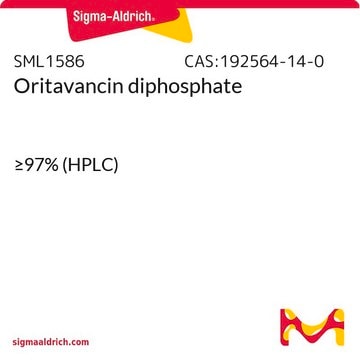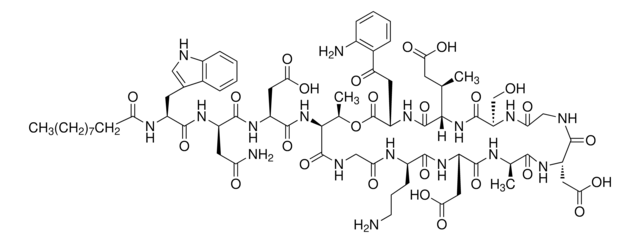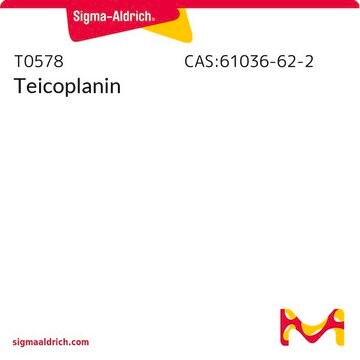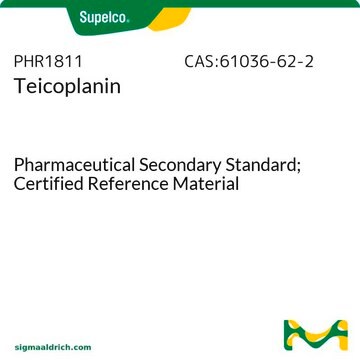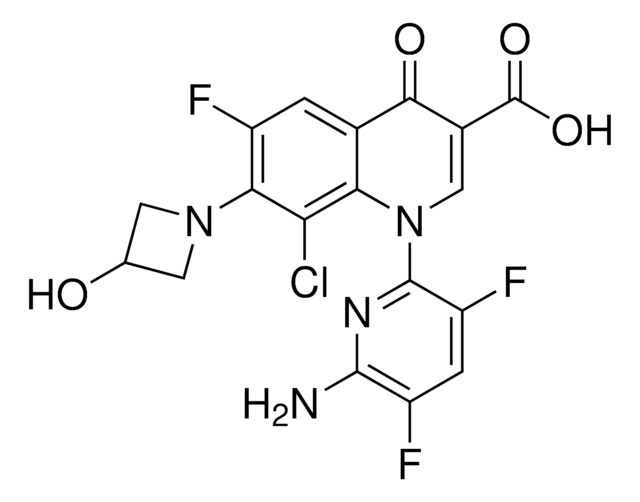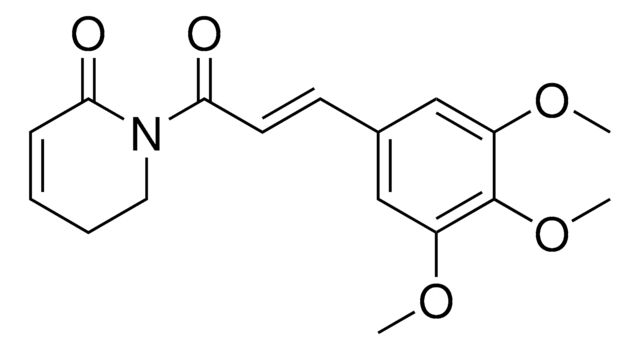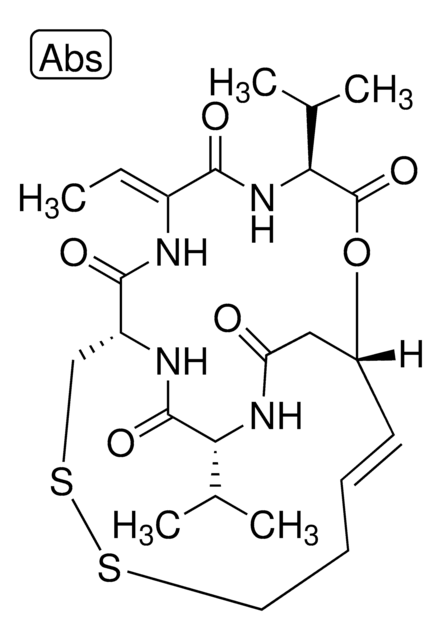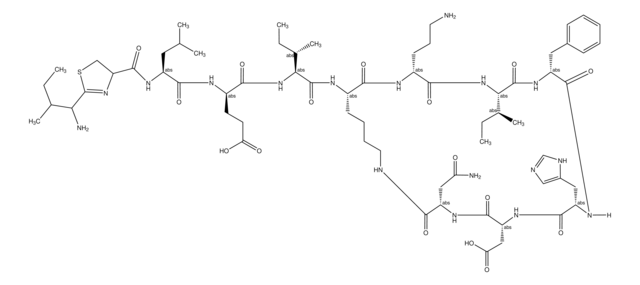SML2378
Dalbavancin
≥90% (HPLC)
Synonym(s):
5,31-dichloro-38-de(methoxycarbonyl)-7-demethyl-19-deoxy-56-O-[2-deoxy-2-[(10-methyl-1-oxoundecyl)amino]-β-Dglucopyranuronosyl]-38-[[[3-(dimethylamino)propyl]amino]carbonyl]-42-O-α-D-mannopyranosyl-N15-methyl- Ristomycin A aglycone, BI 397, BI-397, BI397, MDL 63,397, MDL 63397, MDL-63,397, MDL-63397, MDL63,397, MDL63397, Ristomycin A aglycone, VER 001, VER-001, VER001
About This Item
Recommended Products
assay
≥90% (HPLC)
form
powder
color
white to beige
solubility
H2O: 2 mg/mL, clear
storage temp.
−20°C
SMILES string
O=C([C@@]1([H])NC([C@](C2)([H])NC([C@@H](C3=CC(OC4=CC1=C(Cl)C(O)=C4)=C(O)C=C3)NC)=O)=O)N[C@@](C5=CC(OC6=CC=C2C=C6)=C(O[C@H]7[C@H](NC(CCCCCCCCC(C)C)=O)[C@@H](O)[C@H](O)[C@@H](C(O)=O)O7)C(OC8=C(Cl)C=C([C@@]9([H])O)C=C8)=C5)([H])C(N[C@@]%10([H])C(N[C@]9([H])
InChI
1S/C88H100Cl2N10O28/c1-38(2)13-10-8-7-9-11-14-61(106)93-69-73(109)75(111)78(86(120)121)128-87(69)127-77-58-31-43-32-59(77)124-55-24-19-42(29-50(55)89)71(107)68-84(118)97-66(80(114)91-25-12-26-99(3)4)48-33-44(102)34-57(125-88-76(112)74(110)72(108)60(37-101)126-88)62(48)47-28-40(17-22-52(47)103)64(81(115)98-68)94-82(116)65(43)95-83(117)67-49-35-46(36-54(105)63(49)90)123-56-30-41(18-23-53(56)104)70(100(5)6)85(119)92-51(79(113)96-67)27-39-15-20-45(122-58)21-16-39/h15-24,28-36,38,51,60,64-76,78,87-88,101-105,107-112H,7-14,25-27,37H2,1-6H3,(H,91,114)(H,92,119)(H,93,106)(H,94,116)(H,95,117)(H,96,113)(H,97,118)(H,98,115)(H,120,121)/t51-,60-,64-,65-,66+,67+,68+,69-,70-,71-,72-,73-,74+,75+,76+,78+,87?,88+/m1/s1
InChI key
NECNEVHRBQBTTH-SOWMDMGUSA-N
Biochem/physiol Actions
Storage Class
11 - Combustible Solids
wgk_germany
WGK 3
flash_point_f
Not applicable
flash_point_c
Not applicable
Choose from one of the most recent versions:
Certificates of Analysis (COA)
Don't see the Right Version?
If you require a particular version, you can look up a specific certificate by the Lot or Batch number.
Already Own This Product?
Find documentation for the products that you have recently purchased in the Document Library.
Customers Also Viewed
Our team of scientists has experience in all areas of research including Life Science, Material Science, Chemical Synthesis, Chromatography, Analytical and many others.
Contact Technical Service